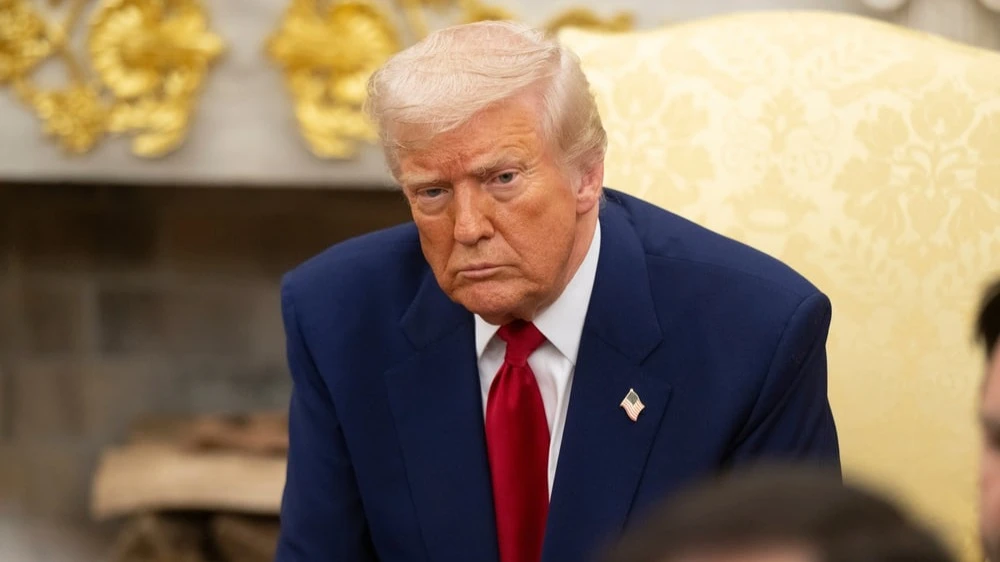Main by morning: Trump explores action plan against Iran, Senate backs steiblecoins

US President Donald Trump discussed the escalating conflict in the Middle East with his national security advisers, sparking speculation that the US could join Israel in attacks on Iran. The Senate passed a steyblocoin bill, and Tesla came under pressure, with Wells Fargo forecasting lower deliveries and free cash flow in 2025. On these and other topics - in our review of key events for the morning of June 18.
Trump discusses options for dealing with Iran
Donald Trump is considering options for dealing with escalation in the Middle East, including a possible U.S. strike on Iran, writes The Wall Street Journal, citing administration sources. Trump left the G7 summit in Canada early on June 16, saying he did so not to work on a cease-fire between Israel and Iran but for something "much bigger."
On Tuesday, Trump wrote on social media site Truth Social that the U.S. knows the whereabouts of Iran's leader but has no intention of killing him yet, and added: "UNCONDITIONAL SURRENDER!" The US president then conferred with top advisers in the White House Situation Room for about an hour and a half and then spoke on the phone with Israeli Prime Minister Benjamin Netanyahu, the source said. That prompted speculation that the U.S. was on the verge of joining Israel's attacks on Iran, noted Bloomberg. White declined to comment.
U.S. Senate approves stackablecoin bill
The U.S. Senate has approved a bill that creates a federal regulatory framework for dollar-backed cryptocurrencies (stablecoins), reports Yahoo Finance. The bill has yet to pass the House of Representatives and get Donald Trump's signature, but its passage in the Senate by a vote of 68 to 30 is a major victory for the crypto industry, which has long sought more favorable regulation in Washington.
The so-called GENIUS Ac establishes rules under which U.S. companies can issue and manage steiblecoins for payments. The law prohibits members of Congress and their families from profiting from stablecoins, but the restriction does not apply to Trump and his family - a move that displeased some Democrats and slowed the bill's progress in the spring.
Under the current version of the bill, issuers with more than $10 billion in assets would be supervised by the Fed and the U.S. Office of the Comptroller of the Currency (OCC). Smaller companies would be supervised at the state level.
All issuers are required to hold reserves in cash or U.S. Treasuries, undergo regular audits, and publish reports on reserves and coin redemption mechanism. Like cash funds, stablecoins must be redeemable at par. However, unlike them, they cannot earn interest.
Wells Fargo: Tesla could go negative on free cash flow
Tesla shares fell after one of Wall Street's most prominent pessimists expressed concern about the health of the company's core auto manufacturing business and declining free cash flow, reports Yahoo Finance.
Colin Langan of Wells Fargo notes that Tesla's fundamentals were worse than expected. The bank forecasts that deliveries in the second quarter will be down 21% year-on-year, with its own estimate of 343,000 vehicles 17% below analysts' consensus.
"The new Model Y is showing weakness: inventory is rising, discounts and promotions are intensifying. There is also no news of an affordable model to push sales in the second half of the year," Langan said in a note to customers. - Order pricing is roughly stable, but rebates and financing subsidies remain in place. We expect margins to decline from the prior quarter."
Against this backdrop, Tesla shares fell nearly 4% at the close of trading, outperforming the broad market's decline.
Of particular concern in Langan's analysis is the company's free cash flow (FCF), which could go into negative territory for the first time since 2018. Given the drop in shipments, credit losses, pricing, duties and continued capital expenditures, Wells now projects FCF outflows of $1.9 billion.
Langan also expressed concern about the robotaxi testing in Austin. "The FSD tests in Austin appear to be limited to a small area, conducted at low speeds and under close supervision. We see the risk of scaling up too quickly, as a crash would be a major blow to the program," he notes.
What's in the markets
Asia-Pacific markets were mixed Wednesday amid rising tensions between Israel and Iran, reports CNBC. Additional concern was sparked by reports that US President Donald Trump is considering a military strike on Iran.
- Japan's Nikkei 225 index added 0.5 percent and the Topix index rose 0.4 percent.
- South Korea's Kospi was up 0.7 percent and the Kosdaq small-company index was up 0.7 percent.
- Australia's S&P/ASX 200 index remained largely unchanged.
- Hong Kong's Hang Seng Index fell 0.9 percent, while mainland China's CSI 300 rose 0.2 percent.
- U.S. stock futures were little changed as traders prepare for the Federal Reserve's interest rate decision to be announced Wednesday evening U.S. time. All three key indices ended the previous trading day lower. The Dow Jones Industrial Average index fell 0.7%, the S&P 500 fell 0.8% and the Nasdaq Composite lost 0.9%.
